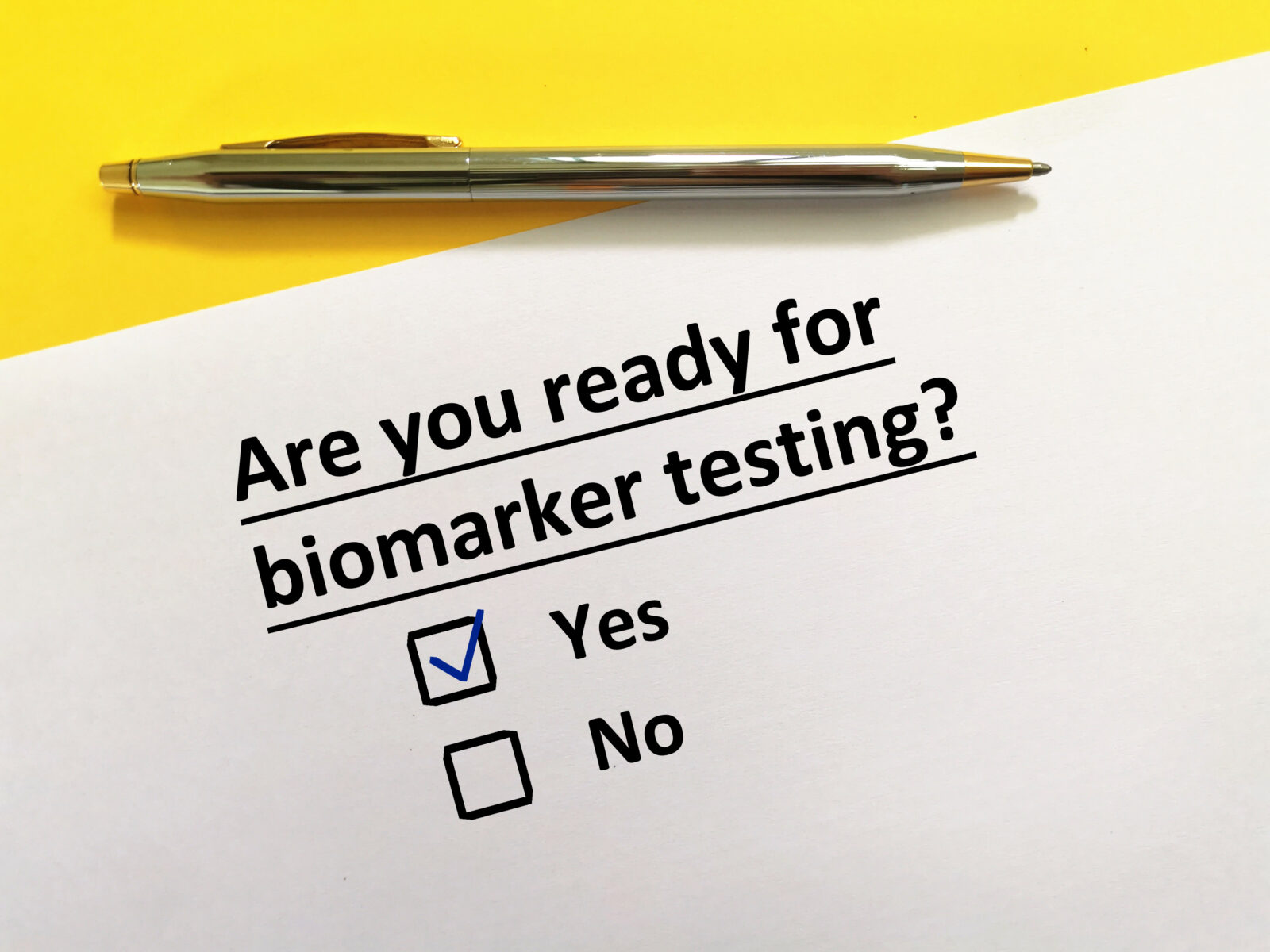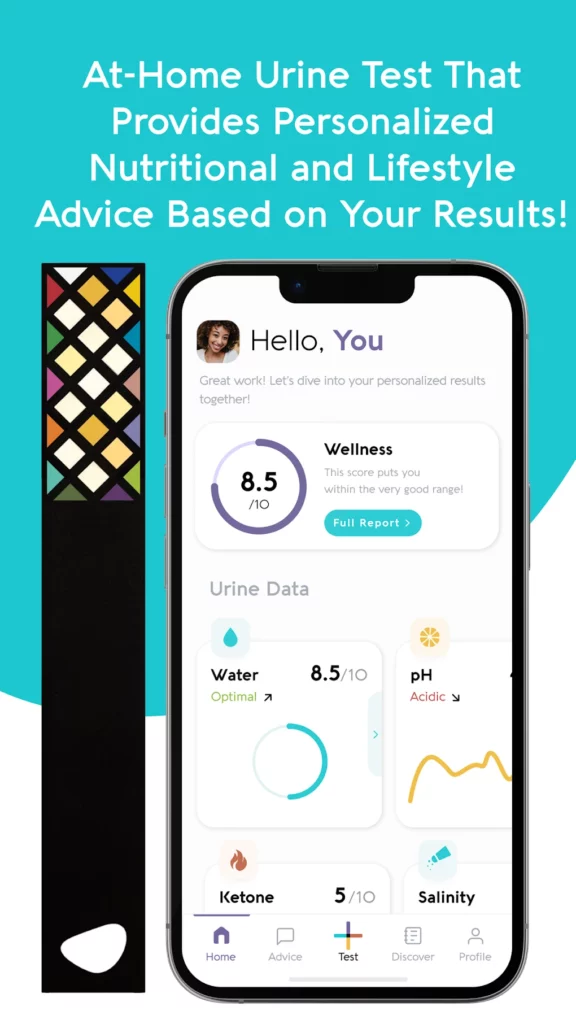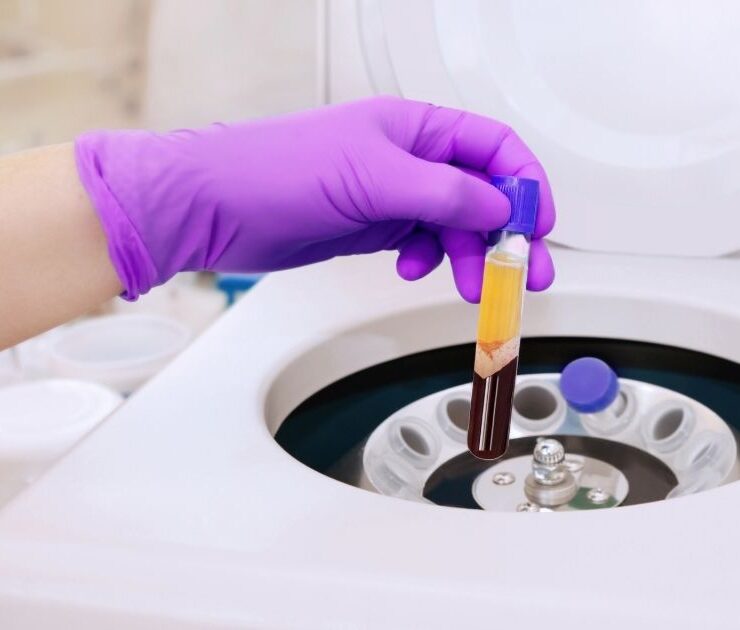Biomarker Testing is Becoming a Pillar of Personal Health

Reed Berglund is a passionate advocate for wellness and an…
Introduction
Every year, our exploration of health and wellness innovations takes us to the electrifying atmosphere of Las Vegas for CES. What was once a showcase for the latest in consumer electronics has transformed into a crucible of innovation, spanning a plethora of industries from automotive marvels to groundbreaking health technologies. Among the myriad of trends that capture our attention, one has distinctly stood out in recent years: biomarker testing.
The concept of biomarker testing is not just a fleeting trend but a revolution steadily becoming the cornerstone of personal health and wellness. As we delve deeper into the age of information, individuals are becoming increasingly conscious of their health, fueled by the ubiquitous presence of smartphones and wearable devices like the Apple Watch and Fitbit. This growing awareness has sparked a quest for deeper insights into personal health, beyond the surface-level data provided by steps counted or hours slept. The community’s burgeoning interest in understanding the nuances of their health has led to a pivotal shift towards biomarker testing. This shift is not merely about gathering more data but about unlocking a new realm of personalized health insights that empower individuals on their wellness journeys.
In this exploration, companies like Vivoo and PNOE have emerged as leaders, heralding a new era of health monitoring that promises to enrich our understanding of our bodies and our health. This article aims to shed light on how these advancements are shaping personalized health care, offering a glimpse into a future where wellness is not just monitored but optimized, tailored to the unique needs of each individual on their journey to better health.
The Evolution of Biomarker Testing
My understanding of biomarker testing has evolved remarkably from the misconception that it was solely reserved for serious diseases like cancer. I’ve come to realize the vast potential of biomarker testing in monitoring various health aspects, including hydration, pH, calcium levels, VO2 Max, oxidative stress, and ketones. The journey of biomarker testing from its inception to its current state is a testament to the relentless pursuit of advancement in medical science and technology.
The term “biomarker” first entered the scientific lexicon in 1973, thanks to Rho et al., marking a pivotal moment in health diagnostics. It denoted the presence or absence of specific biological materials, laying the groundwork for a new era in medical diagnostics. This was not the first instance of its kind, however, as earlier mentions can be traced back to Mundkur’s “biochemical markers” in 1949 and Porter’s “biological markers” in 1957. The evolution of biomarker testing has been significantly influenced by genetic markers, with DNA mutations, single nucleotide polymorphisms, and karyotypic variations serving as critical diagnostic tools for a myriad of disorders.
Cellular and Protein Biomarkers
As we delve deeper into the cellular level, biomarkers reveal themselves as biological and measurable indicators found in blood, body fluids, or soft tissues. They play a crucial role in prognosis and determining the likelihood of response to treatments, thanks to their quantifiable and characterizable nature based on cellular morphology and physiology. Similarly, protein biomarkers offer insights into various biological changes, signaling the onset of diseases ranging from cancer to cardiovascular and neurological disorders. The identification of 142 protein biomarkers covering over 160 diseases showcases the expansive scope of biomarker testing in disease detection and management.
The Advent of Imaging Biomarkers
Imaging biomarkers have revolutionized clinical settings with their accessibility, cost-effectiveness, and non-invasive nature. They provide a significant clinical advantage in early disease detection over molecular biomarkers. Technologies such as positron emission tomography (PET), computed tomography (CT), and magnetic resonance imaging (MRI) have become indispensable tools in the assessment of biological processes and therapeutic responses. PET, for instance, is instrumental in evaluating the effectiveness of cancer treatments by tracking glucose uptake in body cells. Meanwhile, CT and MRI offer unparalleled insights into tumor status and neurodegenerative diseases, respectively, thanks to their high-resolution imaging capabilities.
The Impact of Technological Advancements
The last decade has witnessed remarkable advancements in technology and the sciences, leading to the discovery of innovative disease markers across a spectrum of conditions. This era of discovery has been marked by the introduction of new methodologies, such as immunoassays, histopathology, and clinical biochemistry, which have paved the way for the identification of biomarkers previously elucidated through traditional means. The primary goal of biomarker discovery remains to efficiently and cost-effectively classify new samples for integration into clinical practice, a mission that continues to drive the field forward.
The journey from the foundational use of biomarkers in diagnosing serious diseases to their application in monitoring a wide array of health indicators underscores the dynamic nature of this field and its capacity to transform personal health management.
Spotlight on Innovators: Vivoo and PNOE
Over the past several months, my team at Breathe and I have embarked on an exploratory journey through the realm of biomarker testing solutions, engaging deeply with many technologies designed to enhance personal health insights. Among these, two companies stood out for their groundbreaking approaches and profound impact on the field: Vivoo and PNOE. Having had the privilege to meet the founding teams of both companies, I’ve gained invaluable perspectives on their visions and the technologies they’ve developed to pioneer advancements in health monitoring.
Vivoo: Revolutionizing Health with Urine Analysis
Vivoo has taken a unique stance in the biomarker testing landscape with its urine analysis approach, offering users personalized wellness insights directly from the comfort of their homes. Their test strips, coupled with an intuitive app, analyze various health parameters, including hydration levels, pH balance, and nutritional deficiencies, among others. What sets Vivoo apart is its direct-to-consumer model, which simplifies the process of health monitoring without compromising on accuracy or depth of insight. For those interested in optimizing their wellness with specific strategies, specially tailored to female health, biohacking tips designed for women offer actionable advice and insights that complement the use of biomarker tests like those from Vivoo.

During our meeting, Vivoo’s founding team shared their passion for empowering individuals to take charge of their wellness through actionable data. They’ve harnessed the power of machine learning to interpret test results, providing users with tailored recommendations for dietary adjustments, hydration, and lifestyle changes. This user-friendly approach demystifies the science of biomarker testing, making it accessible to a broader audience and marking a significant step forward in the quest for personalized health optimization.
PNOE: Unveiling Metabolic Health through Breath Analysis
PNOE, on the other hand, offers a compelling insight into metabolic health through its cutting-edge breath analysis technology. Their solution provides a non-invasive method to assess cardiovascular and respiratory function, as well as metabolic rates, offering a comprehensive view of an individual’s health status. The PNOE breath analyzer captures and analyzes the composition of exhaled air, which reflects the body’s utilization of oxygen and production of carbon dioxide.

Meeting with PNOE’s founders, I was struck by their commitment to making advanced health diagnostics accessible outside of clinical settings. Their technology stands as a testament to the potential of breath analysis in identifying metabolic disorders, optimizing athletic performance, and guiding nutritional planning. By translating complex physiological data into understandable health metrics, PNOE is pioneering a new frontier in personalized health monitoring, enabling users to make informed decisions about their fitness and dietary strategies.
The Future of Biomarker Testing in Health and Wellness
The trajectory of biomarker testing is set towards enhanced precision, accessibility, and comprehensiveness. We are likely to witness the development of more sophisticated, non-invasive tests that can provide real-time insights into an individual’s health status with greater accuracy and specificity. Innovations such as nanotechnology and microfluidics will play pivotal roles, enabling the detection of biomarkers at lower concentrations and facilitating the analysis of multiple markers simultaneously from a single sample. This will not only improve the accuracy of health assessments but also expand the range of detectable conditions, from metabolic and cardiovascular diseases to early signs of neurological disorders.
Furthermore, the integration of artificial intelligence and machine learning into biomarker testing platforms will revolutionize data analysis, offering personalized health recommendations with unprecedented precision. These technologies will enhance the predictive power of biomarker tests, identifying potential health issues before they manifest into more serious conditions, thereby enabling proactive intervention.
Impact on Public Health and Preventive Care
The widespread adoption of biomarker testing holds immense potential to reshape public health strategies and preventive care. By providing individuals with actionable insights into their health, biomarker testing empowers people to make informed lifestyle and treatment decisions, fostering a more proactive approach to health management. This shift towards personalized health monitoring and prevention can lead to a reduction in the incidence of chronic diseases, alleviate the burden on healthcare systems, and ultimately improve quality of life.
On a broader scale, the aggregation of biomarker data from diverse populations will offer valuable insights into public health trends, enabling policymakers and healthcare providers to tailor public health initiatives and interventions with greater accuracy. This data-driven approach to public health could lead to more effective prevention programs, optimized resource allocation, and improved health outcomes on a national and global scale.
Moreover, the democratization of biomarker testing, facilitated by advancements in technology and reductions in cost, will ensure that these powerful health insights are accessible to a wider segment of the population. This inclusivity is crucial for addressing health disparities and ensuring that the benefits of personalized health and preventive care are available to all, regardless of socioeconomic status.
Challenges and Considerations
While the future of biomarker testing in health and wellness is undeniably promising, it is not without its challenges and ethical considerations. As we navigate this evolving landscape, several key issues stand at the forefront, demanding careful attention and thoughtful solutions to ensure the responsible advancement of the field.
Privacy Concerns and Data Security
One of the most pressing challenges in the biomarker testing industry is the safeguarding of personal health information. With the increase in data generated from biomarker tests, concerns about privacy and the potential for data breaches have intensified. Ensuring the security of sensitive health data is paramount, as breaches can lead to significant privacy violations and erode public trust in biomarker testing technologies. Companies and healthcare providers must implement robust data protection measures and adhere to strict data privacy regulations to protect individuals’ health information from unauthorized access and misuse.
Data Interpretation and Actionability
Another challenge lies in the interpretation of biomarker data and its translation into actionable health insights. The complexity of biological systems means that biomarker levels can be influenced by a myriad of factors, making it difficult to draw definitive conclusions from test results. Misinterpretation of data can lead to incorrect health assessments and potentially harmful recommendations. Therefore, it is crucial that biomarker testing companies employ advanced analytics and machine learning algorithms, complemented by expert human oversight, to ensure the accuracy and reliability of test interpretations.
Ethical Considerations
The field of biomarker testing also faces ethical dilemmas, particularly in the context of genetic testing, where results may reveal information about predispositions to certain diseases. The knowledge of such predispositions raises questions about the right to know and not know, informed consent, and the potential for genetic discrimination by employers or insurance companies. Ethical guidelines must be developed and followed to navigate these issues, ensuring that individuals are fully informed and consent to testing, and that their genetic information is protected from misuse.
Regulatory Compliance
Finally, the importance of regulatory compliance cannot be understated. As biomarker testing continues to evolve, regulatory bodies play a critical role in ensuring that these tests are safe, effective, and accurately marketed. Navigating the regulatory landscape, which varies significantly across jurisdictions, poses a challenge for companies in the biomarker testing space. Compliance with FDA regulations in the United States, GDPR in Europe, and other regional and international standards is essential for the legitimacy and acceptance of biomarker testing technologies.
Conclusion
The future of biomarker testing brims with promise, heralding a new era in health and wellness where proactive, personalized care becomes the norm, not the exception. As someone deeply immersed in the health and wellness industry, I am optimistic about the advancements biomarker testing brings to our collective health journeys. Its importance in health optimization cannot be overstated—by understanding the unique biomarkers that signal our body’s needs, we can tailor our lifestyle, diet, and even medical care to align with our health profiles.
I encourage everyone to consider biomarker testing as an integral component of their health and wellness journey. The insights offered by these tests can be the key to unlocking your best health, guiding you toward lifestyle changes that are in harmony with your body’s needs. I invite you to explore and engage with companies like Vivoo and PNOE, which stand at the forefront of this health revolution. By starting your personalized health monitoring journey, you’re not only taking a step towards optimal wellness but also participating in the shaping of a future where health care is truly personalized.
Reed Berglund is a passionate advocate for wellness and an embodiment of the active lifestyle. As a former college athlete who played basketball for the UNLV Running Rebels, he's lived a life deeply immersed in body movement and sports. Reed's enthusiasm for staying active extends far beyond the basketball court. He's an avid surfer, wakeboarder, skier, basketball and tennis enthusiast, and an emerging padel player. His love for holistic well-being also includes a dedication to cold plunges and contrast therapy, embracing these practices to optimize recovery and vitality. In his role as the founder of Breathe, Reed brings his extensive experience in wellness and his unwavering commitment to helping individuals discover their path to a healthier, more mindful life. His personal journey and multifaceted fitness background inspire his vision for Breathe as a platform that empowers urban dwellers to explore, experience, and embrace well-being in all its forms. Reed's current focus lies in the realm of flexibility, a key component in his fitness journey to extend the longevity of his active lifestyle. Through Breathe, he aims to share his passion, knowledge, and insights with a vibrant community of wellness enthusiasts, experts, and storytellers, collectively working toward a healthier and happier world.







